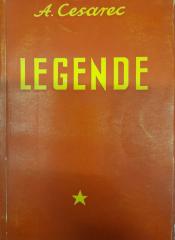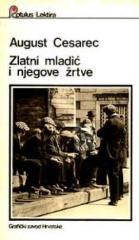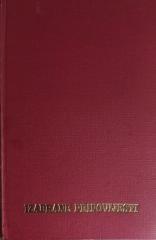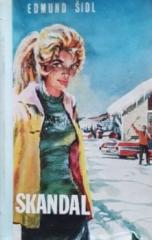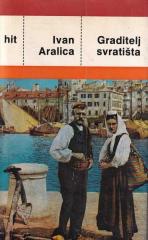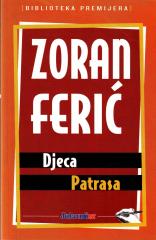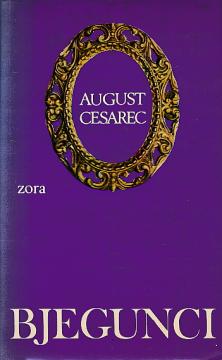
Bjegunci
The novel Fugitives, which Cesarec wrote throughout the 1920s and finally published in 1933, tells the story of emigrants who fled the Yugoslav and Hungarian regimes to Prague, the capital of the then democratic republic of Czechoslovakia.
The novel paints a tableau in which different political positions clash, represented by social democrats and communist revolutionaries, bourgeois politicians, reformists and mystics. It is structured around the central conflict between the student Buga and her mother, a hypocritical activist of the Zagreb bourgeois feminist movement (probably the writer Zofka Kveder). The conflict between mother and daughter, however, transcends the private horizon and reflects the entire range of conflicting political sides of the 1920s, when the bourgeoisie is trying to implement moral and spiritual reform that is defied by young advocates of revolution. The latter, however, are not so much represented by Buga herself as by her acquaintances, for example Nikola Višnjić, whom her mother accuses of advocating violence: “And the point is that Višnjić was increasingly influenced by the events in Russia, October, Brest-Litovsk… And especially that Brest-Litovsk logic revolted my mother greatly, she considered it nothing but a crime.” Just as the mother accuses Višnjić of favoring revolutionary violence, so Buljuz, who is not only an advocate of the revolution, but also a complete fanatic, accuses Buga of empty phrases and defeatism: "Only culture, culture, inquisition, inquisition, humanity, humanity... all that, which we have already heard countless times from different phrases... [...] And then when the struggle is to reach humanity, then he rejects that struggle, just like you!" Unlike Buga, who falls victim to the family's corrupt economy, her fellow student, the artist Ilija Koren, manages to shake herself out of aesthetic "fantasies" and "dreams" and thus experiences a political "awakening": "And I want to see life and things face to face, as they are in reality! And really participate in life and work to change that life, even if, as I said, with the sacrifice of myself!" After going through this transformation, he points out private concerns as the main obstacle to Buga's political subjectivization. Similar to Višnjić, who exclaims that it is only necessary to "know how to manage and decide, that's all!", Koren claims that it is precisely the flourishing of private life - of which Buga's mother is the main bearer - that blocks political realization: "Well, mother! There is no doubt that the concept of mother is something great, which even today more or less intimately binds us all to a single sphere of sensitivity." However, we are "the unhappier, the more we withdraw into our private lives, the more we concentrate on our intimacies!"
One copy is available
